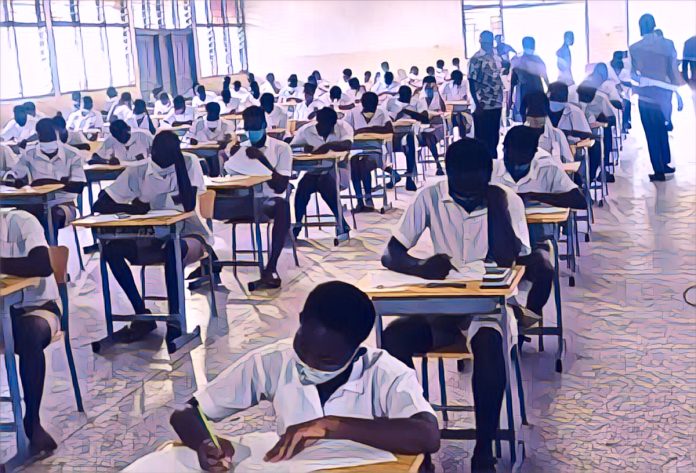KEY POINTS
-
Over 31,000 students failed 2024 WASSCE despite ₦1.5bn funding.
-
Lagos government introduced biometric verification to ensure transparency.
-
The state is revamping both basic and tertiary education infrastructure.
The Lagos State Government disclosed that 31,596 public school students failed the 2024 West African Senior School Certificate Examination (WASSCE).
Commissioner for Basic and Secondary Education, Mr. Jamiu Alli-Balogun, announced the figures during the 2025 Ministerial Press Briefing in Alausa.
He presented the education sector’s scorecard under Governor Babajide Sanwo-Olu and his deputy, Dr. Obafemi Hamzat, during the annual briefing.
Government defends investment in WASSCE sponsorship
Alli-Balogun revealed that the government spent ₦1,577,794,000 on examination fees for 58,188 eligible public school students in 2024.
Despite the investment, more than 50 percent of the beneficiaries failed, sparking concerns about the effectiveness of public school instruction.
To prevent misuse, the state introduced biometric and image registration, verifying 56,134 candidates as legitimate beneficiaries for sponsorship.
He emphasized that the state seeks to relieve parents financially, while also ensuring accountability and eliminating fraudulent claims in education.
State expands education support and tertiary reforms
According to Vanguard, Alli-Balogun announced that 30,000 out-of-school children were re-enrolled in Lagos public schools during the period under review.
He said this effort aligns with the administration’s Education and Technology pillar under its T.H.E.M.E.S+ development agenda.
To tackle performance decline, the Eko Learners’ Support Programme, launched on January 14, 2025, supports students preparing for examinations.
Governor Sanwo-Olu approved ₦102.5 million in housing loans for teachers, resolving backlogs and supporting 118 beneficiaries in 2024.
The state recruited 4,353 qualified teachers between 2023 and 2024, deploying them across districts and technical institutions in Lagos.
Commissioner Alli-Balogun also urged students to avoid drug abuse, cultism, and violence, promoting positive co-curricular engagement through NGOs.
Commissioner for Tertiary Education, Mr. Tolani Sule, said efforts are ongoing to revamp tertiary institutions in line with development goals.
He cited upgraded libraries, harmonised salaries, and the transformation of LASUCOM into an independent health sciences university.
The state also invests in infrastructure, digital literacy, innovation, sports, and accreditation of academic programmes by relevant bodies.



